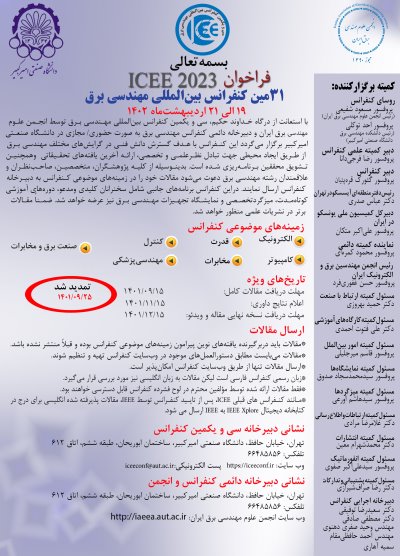0% Complete

نویسندگان :
کلمات کلیدی :
چکیده :
لیست مقالات بایگانی شده
Erfan Meshkizadeh - Ebrahim Afjei - Morteza Kheradmandi
Sahar Hassanzadeh Mostafaei - Jafar Tanha - Negin Samadi - Soodabeh Imanzadeh - Nazila Razzaghi-Asl
Fatemeh Alvankarian - Ahmad Kalhor - Mehdi Tale Masouleh
Faramarz Alihosseini - Zahra Heshmatpanah - Hesam Zandi
محمدرضا شمسیان - فریدون بهنیا
Marzieh Chegini - HojjatAllah Nemati - Mahmoud Kamarei
Maryam Dorvashi - Neda Behzadfar
Mahdi Taghaddossi - Mohammad Hasan Moradi
Kamalodin Arik - Mahmood Akbari - Amin Khavasi
Omid Abbassi Aghda - Mohammad Javad Omidi - Hamid Saeedi-sourck




